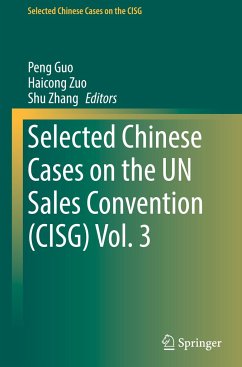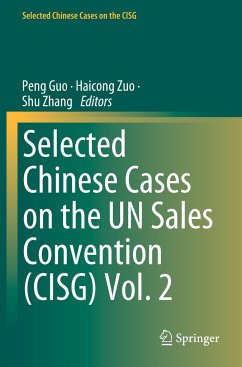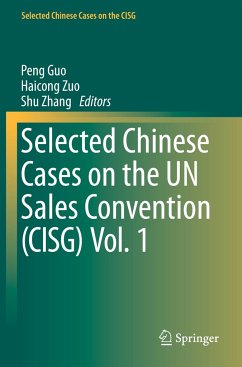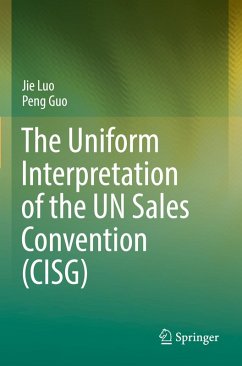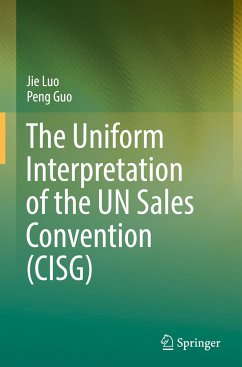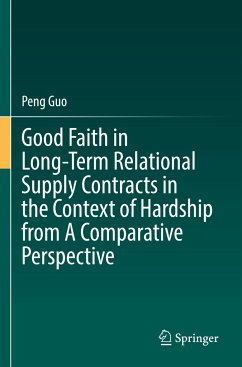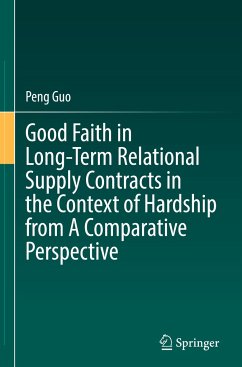
Selected Chinese Cases on the UN Sales Convention (CISG) Vol. 2

PAYBACK Punkte
61 °P sammeln!
This book focuses on Chinese cases on the CISG decided by Chinese courts of all levels, mainly from 2006 to 2010. During this period, the number of cases grew gradually. The total number of cases still remained low, the reasons of which might be the following: parties were not familiar with the CISG and therefore decided to opt out of it; in addition, the case collection and report systems in China at that time were not as developed as now, rendering many cases inaccessible.This book provides a comprehensive and detailed analysis of selected cases. The analysis of those cases will be on a case...
This book focuses on Chinese cases on the CISG decided by Chinese courts of all levels, mainly from 2006 to 2010. During this period, the number of cases grew gradually. The total number of cases still remained low, the reasons of which might be the following: parties were not familiar with the CISG and therefore decided to opt out of it; in addition, the case collection and report systems in China at that time were not as developed as now, rendering many cases inaccessible.
This book provides a comprehensive and detailed analysis of selected cases. The analysis of those cases will be on a case by case basis. For each case, an English summary of the judgments will be provided. In the summary, the People's Court's approach to the interpretation and application of the CISG will be emphasised. Following the summary are comments of the individual case written either by an academic or a current or former judge from international and comparative perspective to discuss the successes and pitfalls of the interpretation and application of the CISG.
This book deals with the cases from 2006 to 2010 in China. These cases reflect how People's Court of all levels started to deal with various issues arising from the CISG and will help understand whether and how the People's Courts change their approaches to the interpretation and application of the CISG in future.
This book provides a comprehensive and detailed analysis of selected cases. The analysis of those cases will be on a case by case basis. For each case, an English summary of the judgments will be provided. In the summary, the People's Court's approach to the interpretation and application of the CISG will be emphasised. Following the summary are comments of the individual case written either by an academic or a current or former judge from international and comparative perspective to discuss the successes and pitfalls of the interpretation and application of the CISG.
This book deals with the cases from 2006 to 2010 in China. These cases reflect how People's Court of all levels started to deal with various issues arising from the CISG and will help understand whether and how the People's Courts change their approaches to the interpretation and application of the CISG in future.





